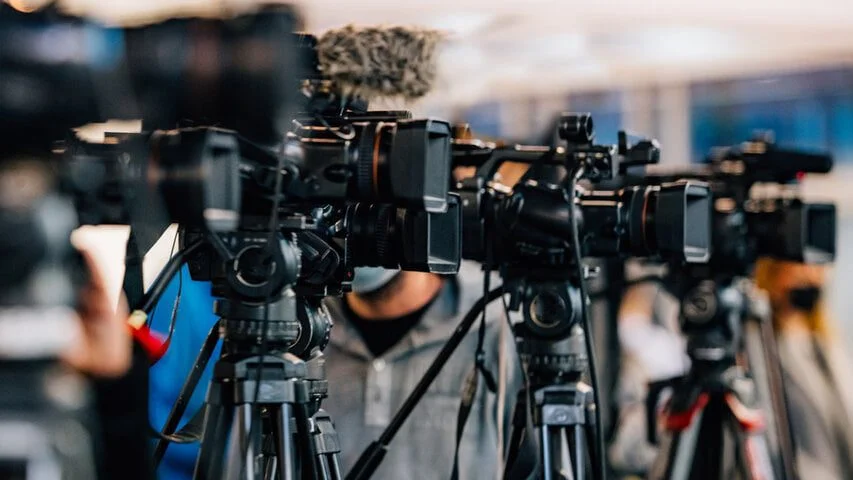Ever watched someone on stage and thought, “Wow. They just own the room”?
They’re not always the loudest. Not always the flashiest. But you can’t look away.
That’s magnetic stage presence. And the good news?
It’s not something you're born with—it’s something you build.
Whether you're giving a keynote, performing music, leading a workshop, or even live-streaming on social media, stage presence is a skill anyone can learn.
Here’s how I (a once painfully awkward speaker) learned to own the stage—and how you can too.
🤔 What Is Stage Presence, Really?
Stage presence isn’t about being the most extroverted person in the room.
It’s about:
Confidence
Connection
Clarity
Charisma
People with stage presence don’t just perform.
They make people feel something.
And that feeling is what makes the moment—and you—memorable.
🔑 Step 1: Own the Space—Before You Say a Word
You don’t need to say a single word to show confidence.
From the second you walk on stage (or onto camera), your body language tells the story.
Try this:
Stand tall—shoulders back, feet grounded
Make eye contact with the audience (or lens)
Smile gently and breathe from your belly
Pause for 2 seconds before you begin
This shows you’re in control—even if you’re nervous inside.
Audiences mirror your energy. If you feel grounded, they’ll relax too.
🗣️ Step 2: Speak Like You Believe What You’re Saying
You don’t need a deep voice or perfect diction to command attention.
What matters most?
Pace
Tone
Intention
Pro tips:
Slow down. Nervous speakers rush. Confident ones own the silence.
Emphasise key words. Don’t be monotone—add texture to your voice.
Let your passion show. If you aren’t moved by your words, your audience won’t be either.
Even a quiet voice can be powerful—if it’s centred and clear.
🎯 Step 3: Connect, Don’t Just Perform
Great performers don’t just broadcast—they create a two-way energy flow.
They make people feel seen.
How to build a connection:
Look at individuals, not the crowd blur. Make real eye contact.
React in real time. Smile if someone laughs. Nod if someone’s nodding.
Acknowledge the audience. “You ever feel like that?” goes further than “Let me tell you.”
Whether it’s 10 people or 10,000—talk to them, not at them.
🧠 Step 4: Know Your Material So Well You Can Improvise
Stage fright often comes from fear of forgetting what to say.
But when you know your content inside out, you’re free to:
Be present
Adapt to the room
Add humour, pauses, or real-time stories
Don’t memorise. Internalize.
That means:
Outline your key points
Rehearse until they flow naturally
Practice different ways to say the same idea
This gives you the confidence to go off-script when needed—and that’s when the magic happens.
🕺 Step 5: Use Movement with Purpose
Don’t freeze like a statue—but also don’t pace like you're trying to outrun your nerves.
Your body should support your message, not distract from it.
How to use movement well:
Move intentionally to emphasise transitions
Use your hands to illustrate key points
Step forward when making a bold statement
Pause and plant when delivering something heartfelt
Even small gestures can make a big impact when they’re purposeful.
🧘♂️ Step 6: Manage Nerves (They Never Fully Go Away)
Even seasoned performers get butterflies. The trick is not to eliminate them, but to channel them.
Pre-performance techniques:
Do a power pose in the mirror for 2 minutes
Take 3 deep belly breaths to calm your system
Repeat a grounding phrase like:
“They want me to win. I’m here to serve, not impress.”
Remember: Nerves are energy. Stage presence is how you direct that energy.
💡 Step 7: Practice in Front of Real People
Want to grow fast? Get feedback.
Rehearse in front of:
A friend
A mirror
A camera
A small test audience
Ask them:
“What moment did you remember most?”
“Did I feel confident?”
“What can I improve?”
Recording yourself—even if it’s cringey—helps you refine tone, pace, and posture.
🌟 Bonus: The X-Factor Is YOU
The real secret to magnetic stage presence?
Bring yourself to the performance.
Your quirks.
Your accent.
Your energy.
Don’t try to copy someone else’s style.
Don’t hide behind a “presenter voice.”
The most magnetic people are simply comfortable in their own skin, and they share that with the room.
💬 Real-World Example
I once watched a nervous teenager perform at an open mic.
She forgot the lyrics halfway through. Everyone held their breath.
She paused, smiled, and said:
“Welp... that just happened.”
The room laughed. She laughed. She kept going.
She didn’t crush the song, but she won the crowd.
Why? Because she was real.
That’s stage presence: Owning the moment, even when it doesn’t go perfectly.
✅ Final Thoughts: Stage Presence Is a Skill—Not Magic
You don’t need to be loud, extroverted, or famous to command a room.
You just need to:
Show up grounded
Speak from the heart
Connect intentionally
Practice with purpose
Be yourself, unapologetically
Start small. Keep showing up. And remember:
Every time you step on stage is a chance to grow—into someone unforgettable.
You’ve got this.













Recent Comments
No comments yet.